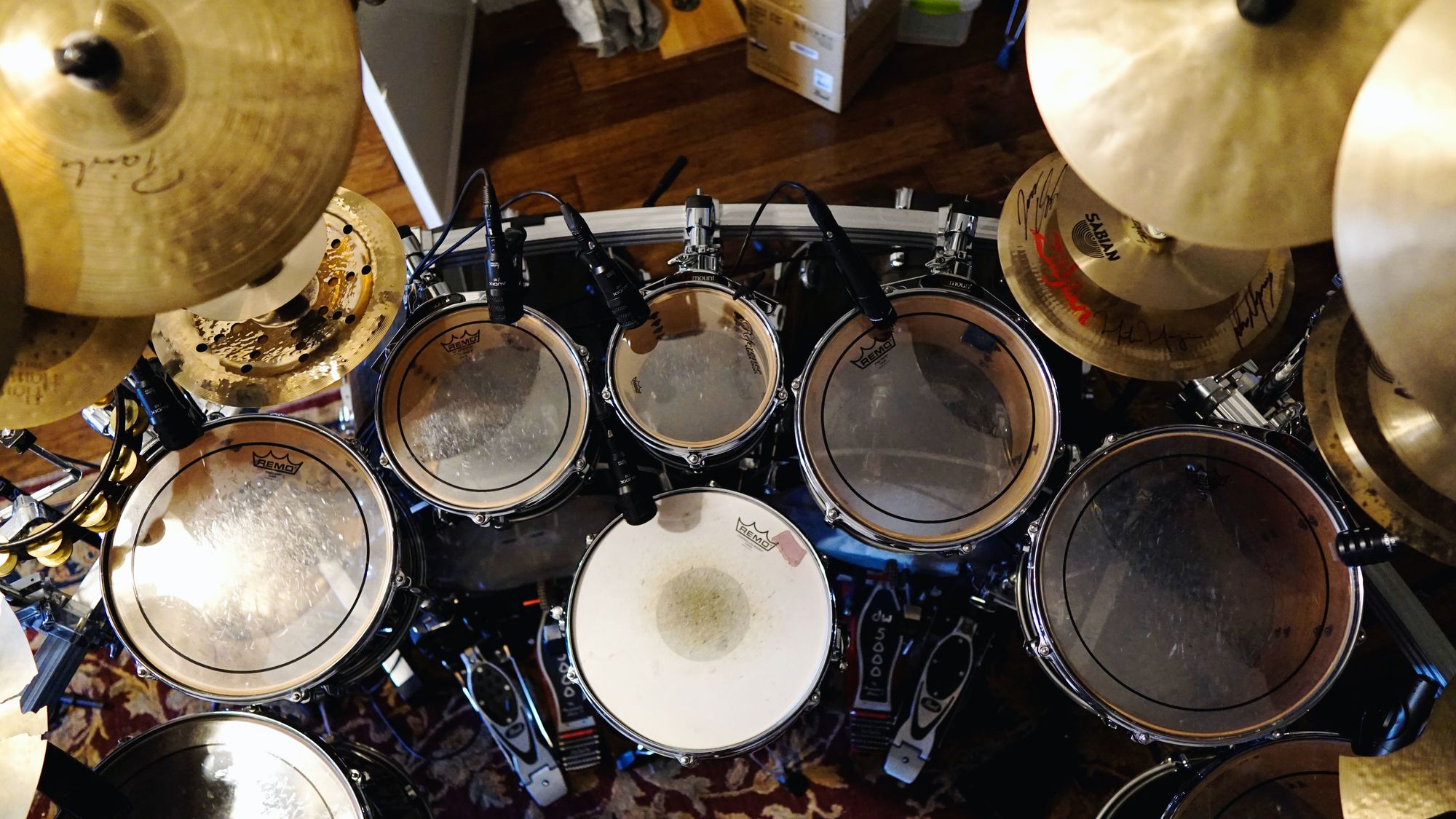Essential Drumming Guide Part 3: Becoming a Successful Drummer
This article will cover the different ways you can make money as a drummer, and the skills required to do so. Remember, you don’t have to limit yourself to one option, nor do you have to do them all. Focus on what you enjoy the most and think about the workload.

Firstly, let’s define what it means to be ‘successful’ as a drummer. This can differ from person to person, as everyone has their own perception of what success looks like. The most common answer is usually “a drummer who plays gigs and records songs for a living” – I.E a session drummer. This is achievable, but it’s become increasingly difficult for drummers to rely on royalties and touring alone for income. The music industry has changed so much, and it’s hard to find full-time session drummers nowadays. Even some of the top modern drummers have other sources of income. For many (including myself), success is getting paid for working as a drummer – whether that’s gigging, session work, teaching or something similar. This could be four hours a week or forty, depending on your goals.
This article will cover the different ways you can make money as a drummer, and the skills required to do so. Remember, you don’t have to limit yourself to one option, nor do you have to do them all. Focus on what you enjoy the most and think about the workload. Most drummers love a gig but playing five in a week might change that!

Gigging:
Gigs are the obvious answer to the question “how do professional drummers earn a living?” It’s true – to an extent. The pay can vary depending on the ticket sales, the promoters and whether you’re supporting or headlining. As with everything in the music industry, there’s no surefire solution. Until you build a reputation or impress the right person, your phone won’t be buzzing with opportunities. You might have to take gigs with average musicians, playing to sparse crowds for almost no money. But if you can network actively and get to know people, opportunities will slowly start to present themselves – If you’re good. It’s the old cliché of “getting your foot in the door,” but everyone has to start somewhere.
Most gigging drummers will start out in a band. This allows them to get comfortable playing with musicians who share similar musical interests. After gaining live experience, the band might tour if they build up a following.
Alternatively, gigging drummers might join a function band. These are the bands you tend to see at parties, weddings or events. Most will play cover songs or specialize in a certain genre to cater for their audience. Although it might not be as fun as playing in an original band, you’ll tend to earn more. A good-quality wedding band can charge anywhere between £1,000 - £2,000 for the night. The band will split this, but you can still take home a tidy sum.
Some drummers will persist with their original band. However, this takes a lot more time, commitment and dedication to start seeing results. To quote AC/DC, “It’s a long way to the top if you wanna rock’n’roll.” Unless you can get onto mainstream radio or rack up millions of streams, all your revenue will come from touring. Ticket sales alone might only cover your expenses, so revenue from merchandise might be what you survive on. This is the hardest and most demanding way to earn a living as a drummer, but equally the most rewarding. Imagine being able to play your own music to your fans as a job!
To gig regularly, you’ll need gear and (usually) your own means of transport. I’m not the biggest fan of driving, but I’d be stuck without my car! Anyone can gig, but only a few can do it full-time. Being on the road away from home is a demanding lifestyle. Consider where & how often you’d like to gig, along with your other commitments too.

Recording:
Recording brings a whole different type of pressure than playing live. Everything is put under the microscope (or in this case, a microphone). It has to be bang in time with the click, dynamically balanced and stylistically appropriate. Basically, it has to sound amazing. Here are some tips for getting hired for studio work;
1. Play the vibe
The producer isn’t looking for you to bust out 32nd note rolls. Unless you’re Steve Gadd, you won’t get away with that! It’s best to lay down something too simple to start with, instead of something too complex. I find it easier to build on grooves than to simplify them. Besides, once you’ve tracked the groove, you can always add additional fills or nuances over the top. In other words, you won’t have to re-track your playing. Providing you’ve got a demo track, the drums will be recorded first. Everyone else’s parts will get layered over yours, so you won’t want to clash with them. Equally, if you’re playing a prog metal track, then the producer might ask you for a more complex groove – so give it to them!
So, how does one “play the vibe?”
2. Listen
To the music and the producer. Everything you play should serve the song. If it doesn’t add anything, leave it out. Once you get back in the control room and hear it back, then you can make suggestions. The more you listen, the more you’ll learn.
3. Be great at one thing
By this, I mean a certain genre (Rock/Pop/Country/Metal). Yes, being versatile will allow you to accept more work, but being average won’t. I know my way around a few different styles of music, but if someone’s looking for a Jazz drummer, I wouldn’t be top of the list. Everyone has a forte, so figure out what yours is. Maybe you just play simple top 40 songs, but you’ve got a great feel to your grooves. That could get you a ton of work in the long run.
Market yourself accordingly – why should they hire you over the next guy? What can you bring to the table that’s better? What’s your ‘unique selling point?’

Teaching:
This is the route I’ve prioritised this year. Teaching drums a hugely rewarding challenge. To me, it doesn’t feel like work most of the time. I know first-hand how frustrating learning the drums can be at times, and that’s what motivates me to help my fellow drummers. Drumming can be a lifelong study, and I’m always learning every day.
That said, teaching isn’t for everyone. It requires a well-rounded understanding of your instrument. You have to be able to communicate effectively, whether you’re teaching five-year-olds, teenagers or adults in their fifties. You’ll need to teach the basics along with more complex topics, keeping the lessons fun and motivating your students. Piece of cake, right?
Patience is another essential quality of a good teacher. Some students will progress rapidly, while others might need multiple lessons to learn a simple beat. If you give up on teaching a concept, your students will lose faith in their ability. Think about how you could simplify or break things down. Equally, be prepared to increase the difficulty of exercises and challenge students when it becomes too easy. To be effective, you have to find that balance.
Appreciating the learning process of your own practice will help you see the bigger picture. It’s not all about the results, it’s about growth. By prioritising this over achievements, you’ll become more patient and understanding. Goals and targets are important but they’re only checkpoints on a long journey. Teaching could be a good fit if you truly love everything about the drums. Your personality will shine through, and your enthusiasm will drive you to progress with your pupils.
These are just some of the ways you can become successful as a drummer. As always, be persistent. Musicians don’t see instant results or overnight success. Everything we achieve comes from hours of practice. It’s not an interview process; careers take time to build. Never lose hope!
